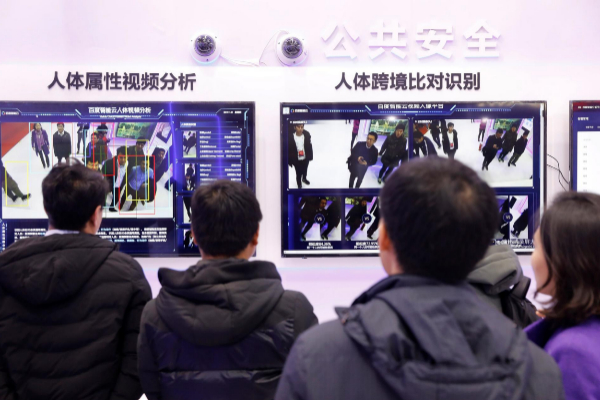- Technology: China forces you to show your face
It should not be easy to find a fugitive in a country where 1.3 billion people live. Some people think that hiding is relatively easy, going unnoticed in the crowd in a large city. Or, simply, disappearing in some lost village among the mountains. But the concepts of Western logic often do not work in the same way in China.
It is the most populous country in the world and one of the largest, but also the one that most monitors its citizens with 300 million security cameras, as well as sophisticated facial recognition systems that detect a face in a crowd in a matter of seconds. Evading that Orwellian control is very complicated; It is one thing to pay a lot of money to change a name on the papers; Changing your face to escape the cameras is impossible. Let them tell the fugitives that the Chinese Police have arrested in recent years thanks to the development of that Big Brother Technology.
From the Ministry of Public Security they have undertaken a crusade against those who have pending accounts with Justice. From murderers and thieves to tax evaders. Of the so-called List A, which includes 50 fugitives suspected of major crimes, almost half have already been caught, 23. The operation has been named Cloud Sword. And artificial intelligence has been key to stopping a few. In other cases, the abundant reward - 22,000 euros - offered by the authorities for any information has also helped the police to do their job.
A murderer who sells watches, a thief turned businessman
The last to fall has been a serial killer who was searching and capturing for 20 years. Lao Rongzhi, an elementary school teacher, killed seven people in 1999, including a three-year-old girl , with the help of her partner. Lao was posing as a prostitute to attract his victims, rich men he kidnapped, robbed and then killed. He was arrested by his boyfriend and accomplice in the crimes, Fa Ziying. But he covered up Lao and helped her escape, refused to cooperate with the Police and was therefore executed. Lao has been missing until this week when she has been arrested at a shopping center in Xiamen City, in Fujian Province. I worked in a watch store and had false documentation.
A few days ago the news also jumped to the Chinese media that a bicycle thief had been arrested after 32 years of flight. Zhang Songming became famous in the 80s in Changde City for stealing hundreds of bicycles. He was captured by the police in 1987 but, after remaining six years behind bars, he managed to escape.
Zhang was wandering from one region to another with a new identity and working as a construction mason. Gradually he was prospering, making money and set up a building waterproofing company. Until his name reappeared in the list of the most wanted of the Ministry of Public Security. And several cameras located Zhang in the city of Hubei.
If we continue to look back a few months, until September, we find the most media news in China in recent years in regards to a fugitive found. It was Song Jiang, 63, who has remained the last 17 hidden in a cave 17 years until he was discovered by a drone . He had a conviction for trafficking of women and children. In 2002 he managed to escape from prison and had been searching and capturing since then. In all that time he had hidden he had not interacted with anyone. The agents who arrested him explained that Song "had forgotten to speak."
We are going to go back even further, until 2018, to a concert in Nanchang City of Hong Kong pop star Jacky Cheung, which was attended by more than 50,000 people. In the middle of the concert, in the security booth, an alarm went off. One of the cameras of the enclosure, by means of the facial recognition system, had found, among thousands of people, a 31-year-old fugitive wanted for economic crimes.
Since China began in 2015 to implement the most powerful facial recognition system in the world, with the aim of locating any citizen of the country in three seconds, the arrests of people with an account pending with Justice have multiplied. Either through the cameras on the street, the scanner that you have to go through in many subway stations or, even, through the smart glasses that many agents have on the lenses algorithms that identify a person's face and check it with the Government databases.
The Police have always maintained that they only access data of people who have any pending cause. But human rights organizations, such as Human Rights Watch (HRW), have been warning for years that since Beijing they are "constantly violating citizens' privacy." Especially to monitor those who do not follow the codes of conduct established by the Communist Party.
According to the criteria of The Trust Project
Know more- China
- Hong Kong
Asia Elite forces of Chinese prisons to get Hong Kong out of 'total collapse'
United States House of Representatives asks Trump to sanction China for treating Uyghur minority
Violent revolt: Hong Kong's 'torch man'

